Verbal transitivity, within the scope of verbal predication, indicates the type of connection that a transitive verb establishes with its complements. A transitive verb is a verb that needs complements to complete its meaning, as it alone has an incomplete meaning. Verbal complements are the direct object and the indirect object. Learn about some activities about verbal transitivity and apply them in the classroom
. 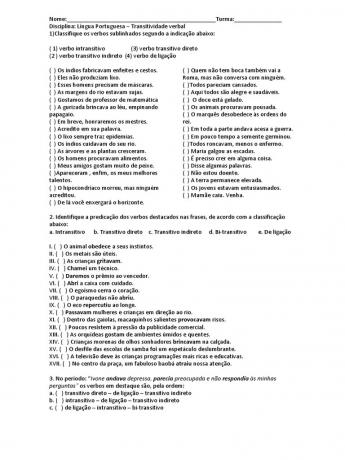

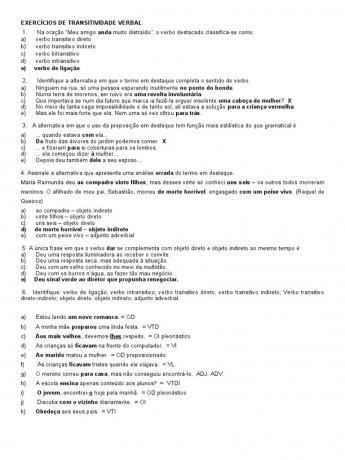
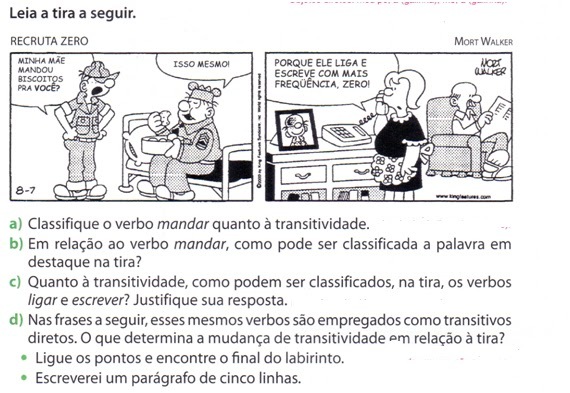

Classify bold verbs for transitivity.
a) I bought a car.
b) Gustavo works much.
c) she wanted to please to me.
d) she he likes of luxury cars.
it's him traveled yesterday.
List the columns according to the transitivity of the highlighted verbs.
I. Direct transitive verb.
II. Indirect transitive verb.
III. Direct and indirect transtive verb.
IV. Intransitive verb.
The) ( ) I like of people who are optimistic.
B) ( ) gaveme a very sad news.
c) ( ) My friend he died yesterday.
d) ( ) Cecilia has won the prize.
e) ( ) The travelers They arrived in the morning.
In the excerpt: “If I convince Magdalene that she doesn't
a) direct transitive, indirect transitive, direct transitive, indirect transitive.
b) direct and indirect transitive, direct transitive, direct and indirect transitive, intransitive.
c) indirect transitive, direct transitive, direct transitive, intransitive.
d) direct and indirect transitive, direct transitive, intransitive, indirect transitive.
e) direct transitive, direct transitive, intransitive, intransitive.
In “If found out the demoralization that reigns inside me”, we have, respectively, verbs:
a) direct transitive and indirect transitive.
b) direct transitive and binding.
c) indirect and intransitive transitive.
d) direct transitive and intransitive.
e) intransitive and intransitive
Check the alternative where the verb is direct transitive.
a) I bought land and built the house.
b) Warriors sleep now.
c) The blind cannot see.
d) John looks angry.
Check the alternative in which the verb is indirect transitive:
a) The dog disappeared yesterday.
b) Offered a prize to the best seller.
c) They trust their superiors.
d) I know these things.
Rate the verbs according to their transitivity and answer the other questions:
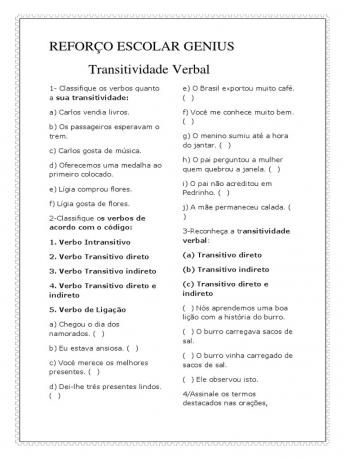
In the sentences below, identify the verbs. Then, according to the context in which they are inserted,
say whether or not you need a verbal complement: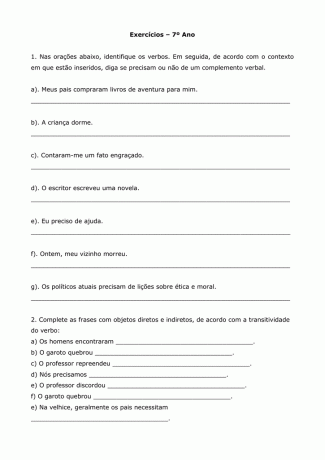
Answer the questions below about verbal transitivity:
All verbs in the sentences that follow are intrasitive. Expand these sentences by adding words
or expressions that give an idea of place, time or mode.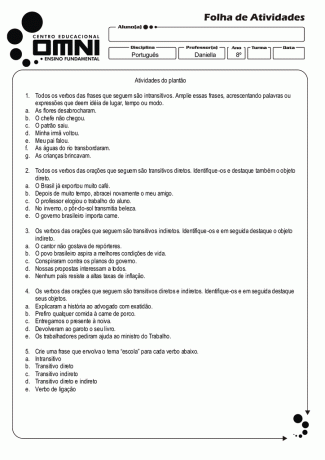
Read the text and answer the questions below about verbal transitivity:

Sort the underlined verbs as indicated below:
Identify and classify the adverbial adjuncts and answer the other items asked about
verbal transitivity:
Answer the items below about verbal transitivity: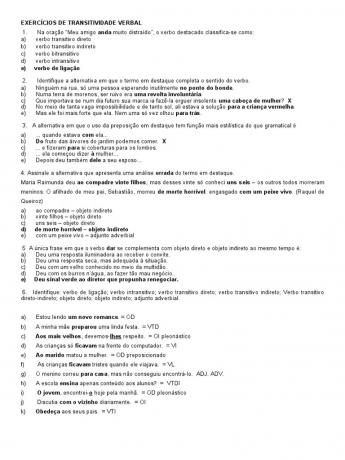
Read the strip below and answer the requested items: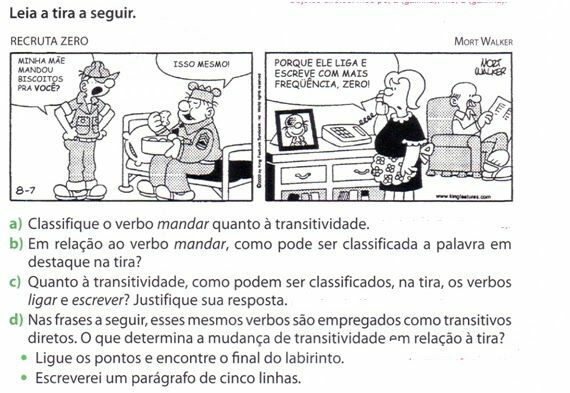
Did you like it? Share this post on your social network
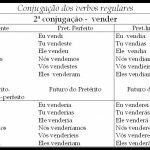 VERBAL CONJUGATION TABLES
VERBAL CONJUGATION TABLES
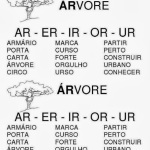 Posters with all syllable families
Posters with all syllable families
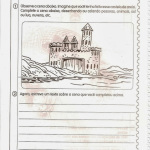 5th year text production activities
5th year text production activities
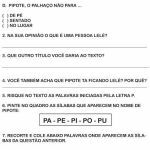 Texts for interpretation 1st grade elementary school
Texts for interpretation 1st grade elementary school
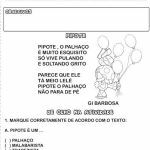 Texts for interpretation 1st year
Texts for interpretation 1st year
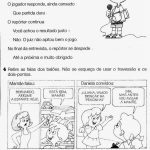 IDEAS OF ACTIVITIES ABOUT STRAND
IDEAS OF ACTIVITIES ABOUT STRAND
This site uses Akismet to reduce spam. Learn how your comment data is processed.